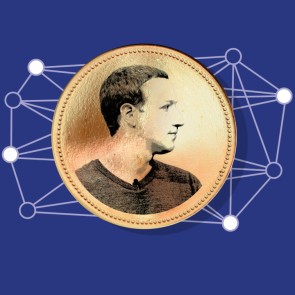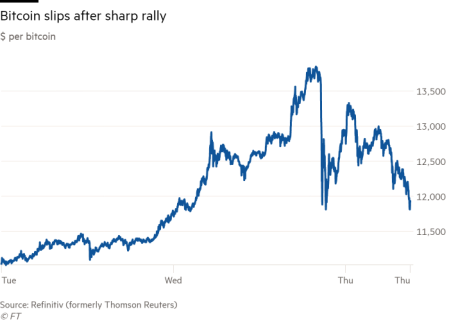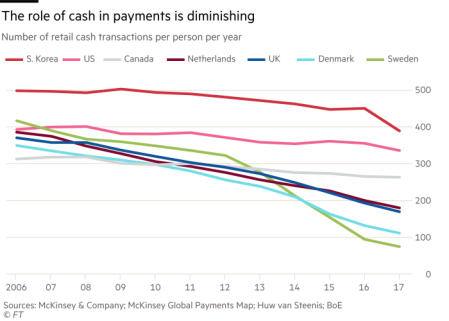https://thenextrecession.wordpress.com/2019/06/29/facing-up-to-libra/
Facing up to Libra
by michael roberts
Libra is the name that Facebook, the global social network company, is calling its planned international digital currency. What is Facebook’s purpose with this planned new currency?

According to Facebook, Libra is “a simple global currency and financial infrastructure that empowers billions of people”. In its statement, the company says that: “The world truly needs a reliable digital currency and infrastructure that together can deliver on the promise of “the internet of money.” Securing your financial assets on your mobile device should be simple and intuitive. Moving money around globally should be as easy and cost-effective as—and even more safe and secure than—sending a text message or sharing a photo, no matter where you live, what you do, or how much you earn. New product innovation and additional entrants to the ecosystem will enable the lowering of barriers to access and cost of capital for everyone and facilitate frictionless payments for more people.”
So the professed aim is to provide a currency for everybody using the internet to buy and sell goods and services to each other across the world, seamlessly and with near-zero transaction costs. International banks and national currencies would be by-passed and all their costs and fees would be avoided. Moreover, all transactions would be private and not viewable by the authorities or banks. And supposedly over one and half billion people without bank accounts would be able to carry out transactions globally on their phones and laptops, not using cash.
Libra’s setup may make international transactions a little faster, but actually not nearly as fast as traditional payments processors. It looks like Libra can do about 1,000 transactions per second. A traditional payments processor like Visa can do about 3,000 transactions per second.
In principle, any digital currency ought to make payments for goods and services simpler and cheaper so that people do not need to carry wads of cash about (eg flying to country with a suitcase). A digital currency seems the way to go in the 21st century – but it immediately poses issues. Who controls this currency and what about people who want to hold cash and do not want to be forced to have a bank account or a Libra ‘wallet’ to buy things?
Facebook is not a pioneer here – already a digital payments service operates in China with WeChat and Alipay. The issue here is the sheer size of Libra’s global grasp, with the billions of Facebook users and also the number of large multinationals that have pledged to back and take the new currency.
Libra is the Latin word for pound in weight of silver or gold. It was a universal measure of value in Roman times. But Facebook's Libra will be no such thing. It is not the future people’s currency controlled by the people. It is a privatized currency for commercial gain for Facebook and its investment backers. It will be owned and controlled by a board of multi-national corporate investors who will pledge capital to get it going.
The US dollar currency is owned by the US government. This is the same for other national currencies. As such, there are regulations and laws on how national currencies are issued. None of that will apply to Libra. Holders of Libra will have to trust Facebook and the investing board, not any government, that nothing will go wrong with their money.
Facebook says it will be using blockchain technology, the decentralized digital settlement system that is behind such so-called cryptocurrencies, like bitcoin. Cryptocurrencies aim to eliminate the need for financial intermediaries by offering direct peer-to-peer (P2P) online payments. Blockchain is a ‘ledger’ containing all transactions for every single unit of currency. It differs from existing (physical or digital) ledgers in that it is decentralized, i.e., there is no central authority verifying the validity of transactions. Instead, it employs verification based on cryptographic proof, where various members of the network verify “blocks” of transactions approximately every 10 minutes. The incentive for this is compensation in the form of newly “minted” cryptocurrency for the first member to provide the verification.
The purpose of money in a capitalist economy is first as a universal means of payment, then as a store of value and finally as a unit of account in balance sheets. Cryptocurrencies are nowhere meeting these three criteria. Their function as a unit of account and store of value are greatly impaired by their speculative nature. The value of bitcoin is very volatile because it is really only bought and sold by speculators and not used by the general public or corporations for transactions or savings.

Libra does not even have the ambition of bitcoin to be a universal decentralized digital currency for people. It will be a private currency designed to extend Facebook’s control over the purchasing power of its 4bn users and make money.
Libra is really, in financial jargon, an exchange traded fund (ETF), where the value of Libra is based on a ‘basket’ of five national currencies (dollars, euros, yen, sterling and Swiss franc) according to a weighted ratio. Libra is not a true international digital currency in its own right but dependent on the value of these major national currencies. It’s a private currency for Facebook users. It will be similar to the Special Drawing Rights (SDR) used by the IMF for the settlement of contributions and payments by national governments to the IMF. SDRs are also tied to the value of national currencies like the dollar.
And here is the rub. If you buy some Libra and hold it in your Facebook Libra ‘wallet’ for future purchases, you won’t get any interest as you would if you held dollar deposits in a bank. But this Libra sitting in wallets around the world will be invested by the multi-national board in financial assets to make money for them. In effect, all interest goes to the owners of this private currency – it’s a form of seignorage, previously only available to national governments and central banks for the use of their currencies. As the white paper puts it: “Interest on the reserve assets will be used to cover the costs of the system, ensure low transaction fees, pay dividends to investors who provided capital to jump-start the ecosystem, and support further growth and adoption…..Users of Libra do not receive a return from the reserve.”
Indeed, the huge amounts of Libra that build up in Facebook users ‘wallets’ would become available for the board to speculate in financial assets globally, thus adding a new dimension to the possibility of credit bubbles and financial crashes that could come back to hit billions of Libra users. The regulation of the banks and other financial institutions has not worked, as the global financial crash proved. And the huge rise of private sector debt continues alongside the rise in public sector debt that mushroomed to bail out the global banking system. With a successful Libra, there would be another new layer of credit-fuelled debt created, with repercussions for billions of people and this time without any deposit insurance from governments!
What is worrying from global capital’s view is that if a large section of a country’s population were to use Libra instead of the sovereign currency, central banks could be left powerless or unable to stop the rapid conversion of currency into Libra during periods of financial distress. Now you might say that’s good news for people, if not for capital. People need to break away from the control of central banks, commercial banks and governments and ‘free up’ the currency and reduce the cost of our transactions.
But Libra will not deliver on this aim. Libra’s claim that the currency will be designed and operated “as a public good” with “decentralised governance” is hard to tally with an operating structure comprised of unaccountable and highly-centralised global corporations such as Facebook, Uber and Paypal. With cash use increasingly restricted, we’re already reliant on a handful of big banks to manage our money and make payments, while Visa and Mastercard have achieved almost total dominance of the card market. Visa now accounts for 98% of debit cards issued in the UK. Libra is really a corporate attempt to assert even greater control over our money.

What we really want from a digital currency is transparency in its operations and privacy with your data – Facebook’s Libra is the mirror opposite of that. What it does show is the bureaucratic, inefficient and autocratic control of our money by the state and its institutions is now under threat from mega-global tech companies using their control of social media. This is ironic just when the supporters of Modern Monetary Theory are telling us that it is the state that controls and creates money so we can use the state to get employment and incomes for all. Now it seems the state will be challenged by mega private monopolies for the control of our money.
What we really need is democratic control of financial institutions and the take-over of mega-tech companies like Facebook, Google and Amazon. Governments should then use technological innovation to develop an international digital currency controlled and run in the public interest. But such a public digital currency would require common ownership and control of financial institutions and digital monopolies. In the meantime, it will be the US dollar or Libra… maybe.
No comments:
Post a Comment